
Light and compact for easy packing, yet thick and warm enough to really make a difference on cold hard ground, an insulated inflatable mat is one of the best single purchases you can make if you value a decent night's sleep. But they don't come cheap, and whether you go for a down-filled model (warmer for the weight, but heavy on the wallet) or one using a synthetic fibre insulation, you'd generally expect to spend well north of £100, and quite possibly twice that. Of course we don't all have that sort of spare change down the back of the sofa. Especially in times like these, there's a lot to be said for affordable alternatives that unfussily get on and do the job.
With that in mind, I was pleased to receive the Air Lite Sleep Mat for review. Friendly on the budget, at least relative to some other prices out there, this is a model that's warm enough for summer-plus-a-bit on the hills, and still realistically light for backpacking and not just car camping. It can't compete with high-end alternatives for warmth, lightness, or comfort, but if you're after something that'll more than do in most situations, without necessarily breaking the bank, then have a look at the Air Lite. It's nothing fancy, but then how fancy do you want anyway?
What it comes with
The Air Lite Mat comes with a stuff sack (20g), and an inflation bag (93g). Designed so that you can squeeze air into the mat without having to introduce moisture from your direct breath, the inflation bag is massive, taking only five or six goes for a full mat. It also feels durable, though thanks to its thick fabric it's inevitably a fair bit heavier than the bags that come with most pricier mats.
Weight, durability and packed size
When it comes to backpacking gear there are no free lunches, and if you want an insulated inflatable mat under around 300, 400 or even 500g then you're likely to pay a substantial amount for it. Sure enough the affordable Air Lite comes in at 571g on my scales, which these days I'd say was fairly hefty for a mat of its relatively modest warmth. Altogether it works out at 684g for mat, stuff sack, and inflation bag (Trekmates say 760g, rather underselling themselves).
With a considerably lightened wallet you could easily save yourself a lot of weight on a mat, an investment that committed lightweight backpackers and mountaineers may well consider worth making.
But perhaps you're not quite that motivated. You may only occasionally go backpacking, and don't feel the need for every item of gear to be the last word in ultralight; maybe you're a student on a budget, or a youngster on your DofE; or perhaps the daily overheads simply rule out paying top whack. If any of that applies to you then the Air Lite Mat may hit a good balance between bearable weight and reasonably low price.
It's certainly not a flimsy lightweight. The 40D Nylon ripstop fabric feels pretty tough, so while you'll always need to take a bit of care with an inflatable mat, this one doesn't seem like it'll puncture at the first sign of a pointy pebble. I did manage to make a pinprick hole by kneeling on a sharp-edged tent peg, but the damage was less than I might have seen with a thinner fabric, and was easily repaired with some fabric glue and a patch (neither are provided with the mat).
Rolled up, the Air Lite fits in a stuff sack about 25cm long, and though it's overall a fair bit bigger than some pricier models I don't think the packed size is at all bad at this budget. There's spare space in the stuff sack, so you could feasibly roll it smaller. The room it takes up in a pack seems unlikely to put anyone off buying it.
Dimensions
This isn't one of those shorter or narrower models that has the primary aim of reducing pack weight. At 188cm x 58cm at the widest point there's a fair bit of length and width here, so you can stretch out and roll over without instantly finding yourself on the cold ground. At 183cm / 6 foot tall, I could actually have got away with slightly less; shorter users will end up with excess length, which amounts to unnecessary weight. It might have been worth Trekmates offering a smaller version.
Warmth and comfort
The 5cm-deep air cells soak up plenty of bumps and unevenness, so while it's not the thickest model available the Air Lite Mat does provide decent comfort on rough ground. It isn't just for camping on flat, manicured campsites. For a mat of this thickness I've certainly got no complaints, and have had a good night's sleep on wild camps without thinking about the ground beneath.
An un-insulated inflatable mat will tend to be pretty cold to sleep on as the heat leaches out of you into the ground. By adding a modest amount of fill the Air Lite Mat significantly increases night time comfort and thus the functionality of the mat and the number and variety of occasions you'll be happy using it. Inside is a microfibre insulation at 60g/m2. This gives you an R-value – a lab-based measure of insulating performance - of 2.2, a figure roughly equivalent to the best closed cell foam mats. For summer use in the UK hills this is plenty, and though I've only used it on one September night so far I'd say it also ought to provide enough insulation from the ground below on cool, if not very cold, spring and autumn nights. Trekmates don't offer a seasonal rating so I'm going for roughly 2-season.
Value for money?
Similar-looking products can be found elsewhere, some cheaper, some lighter, and some which are claimed to be warmer. Personally I'd be wary of product quality, claimed performance, and customer support when it comes to unfamiliar makes purchased from sources such as online retail giants named after rivers. The fact that Trekmates have put their name to the Air Lite Mat suggests it ought to be a product to place a bit of confidence in, and with that in mind it seems likely to be better long-term value than a random internet purchase.
Ethics and environment
While Trekmates, or their parent company Outdoor & Sports Company Ltd, have a page on corporate social responsibility, I have to confess that none of the wording means much to me. OSC's other more premimum brands subscribe to initiatives such as the Fair Wear Foundation, but if Trekmates do too then they're not making that obvious.
Summary
It's not a specialist lightweight. Mats that are far warmer and lighter are available – at a price. But with the Air Lite Mat Trekmates have delivered a solid and functional mat that offers decent comfort for valley camping, and enough warmth for at least cool weather in the UK, while not being out of the question for carrying up hills. And importantly, it comes at a relatively affordable price. For occasional backpackers, all-round car camping, or anyone on a budget, this could be all the camping mat you need.



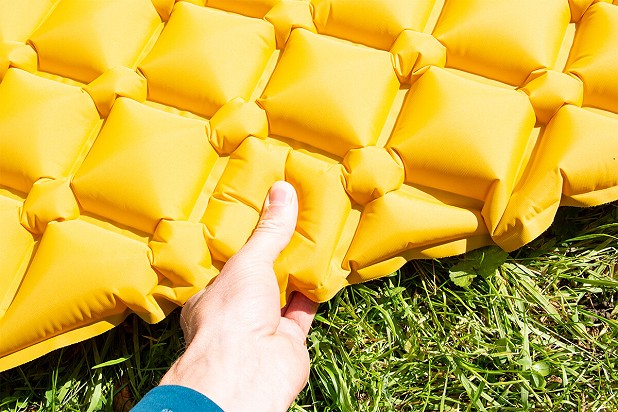
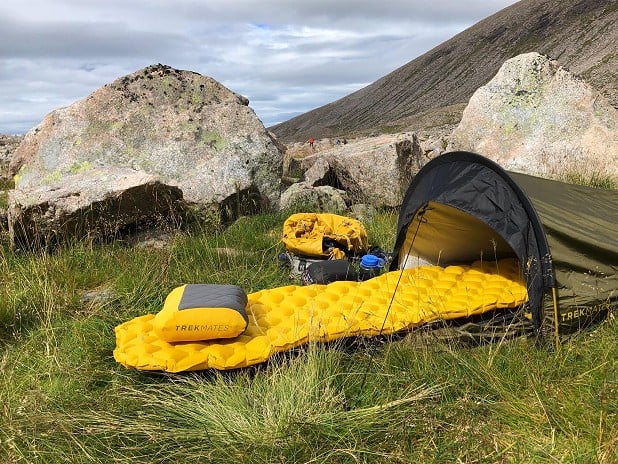
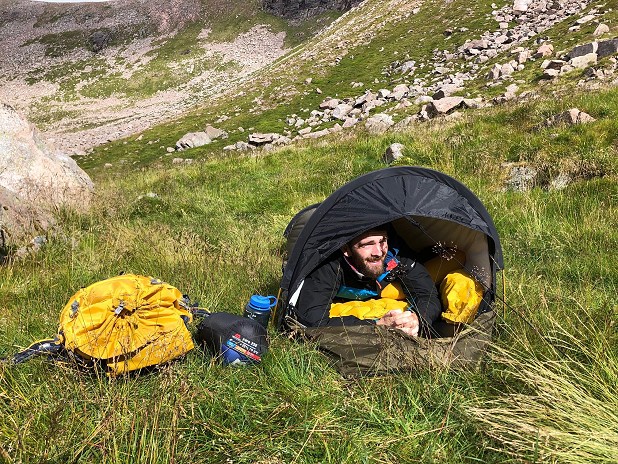
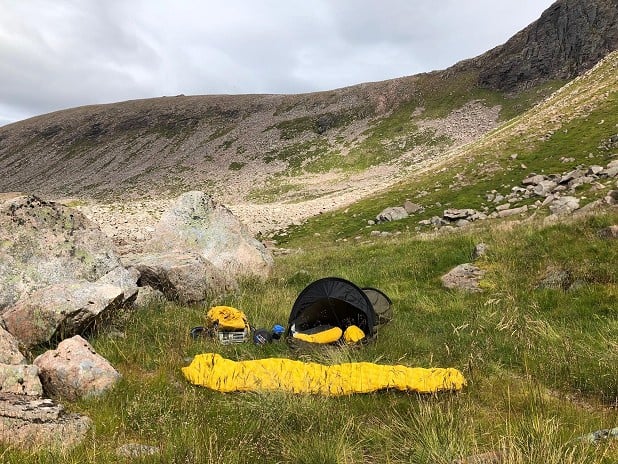
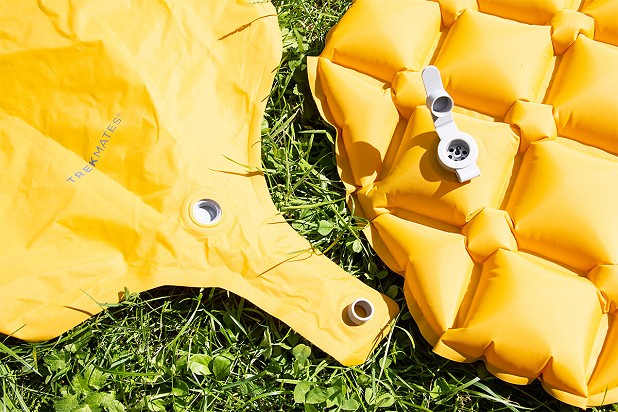
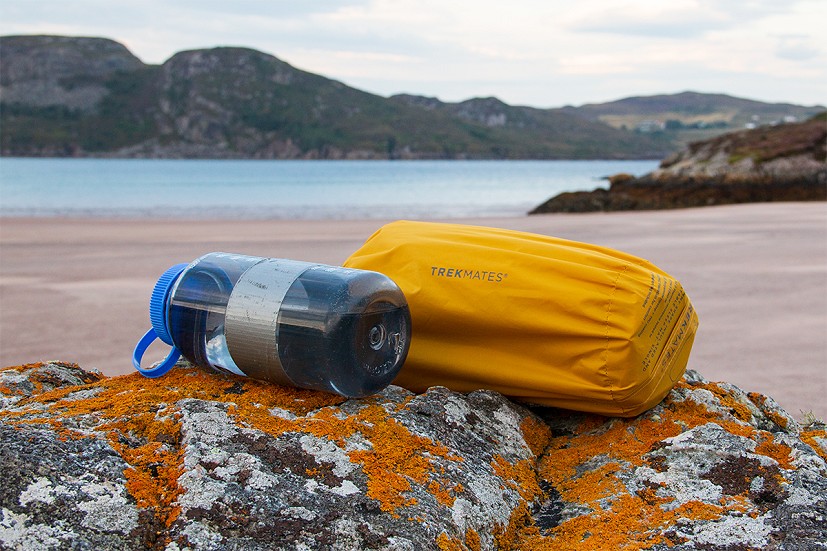
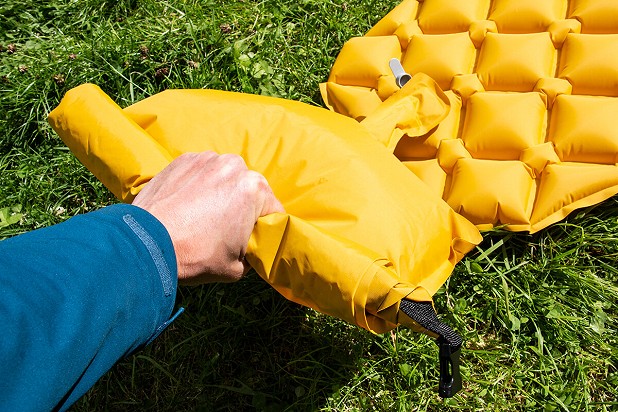
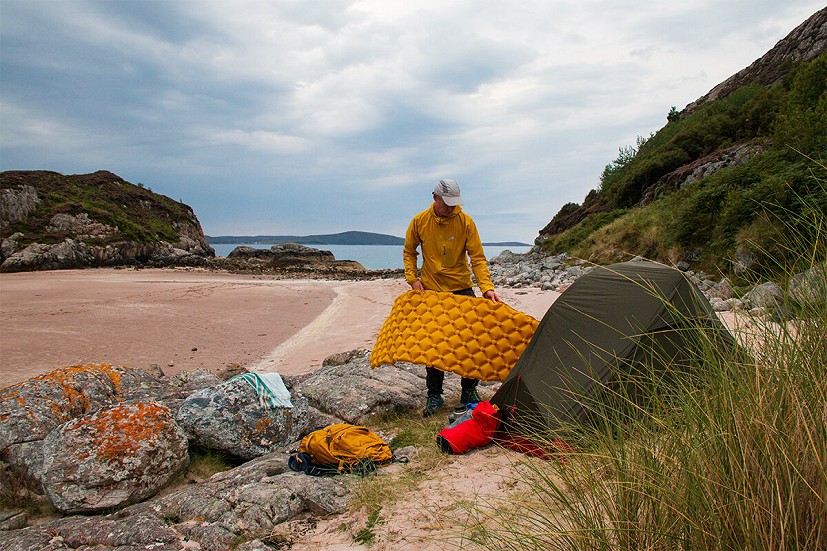


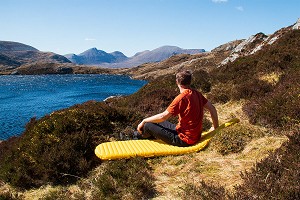

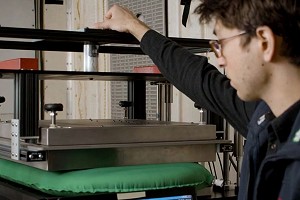
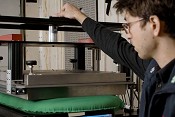
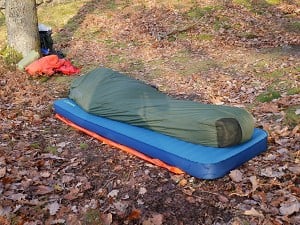
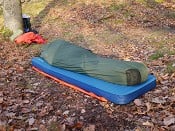
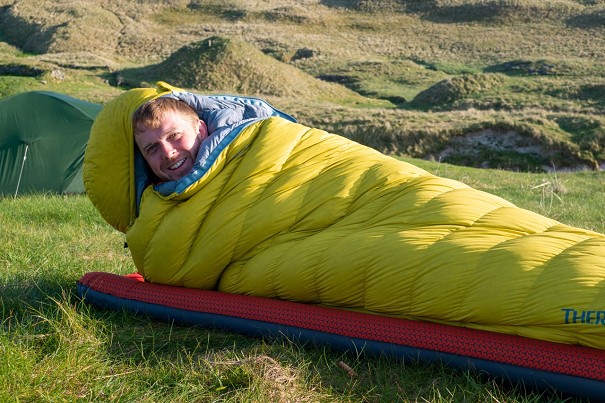


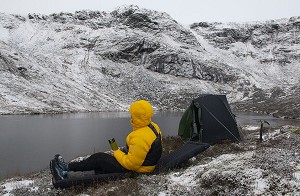
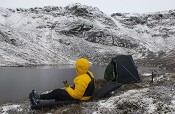
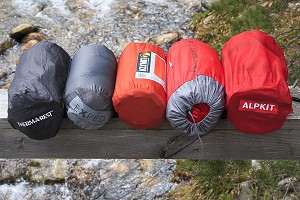
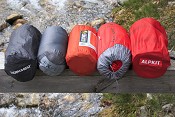
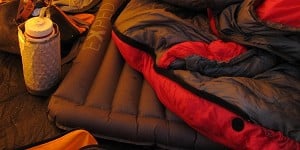

Comments
£80 for the same insulative performance as a foam mat which is almost half the weight, costs £20 and will last far longer. I can never understand the attraction of inflatable mats.
They are (imho) significantly comfier.
If you are a side sleeper foam mats are very uncomfortable, at least I certainly find that they are.
Half the weight and very affordable, but far larger and a fraction of the comfort of an inflatable mat... foam mats may have their place on something like the Cuillin (even then I'm in two minds) but for most uses they're far inferior. I've had the same Karrimat for over 30 years, so it wins on longevity, but it's a beast of an object on a pack and I've rarely carried it since getting my first inflatable and realising how much better I feel after actually sleeping through the night!
Would be super interested to see a comparison with / hear thoughts on the alpkit cloud base (if commercial arrangements allow....)